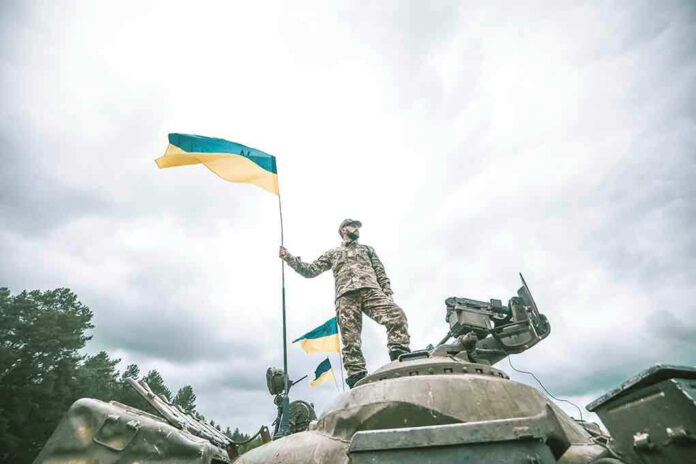
Russia’s strategic deportations have left Ukrainians stranded at the Georgian border, spotlighting a humanitarian crisis amidst geopolitical tensions.
At a Glance
- Russia is deporting Ukrainians, leaving them stranded at the Georgian border.
- Humanitarian conditions are dire with reports of basic necessities lacking.
- Ukrainian government evacuated some citizens, but many remain stranded.
- Georgia’s upcoming migration law changes could worsen the situation.
Deportations and Humanitarian Crisis at the Border
The Russian-Georgian border has become a scene of despair as Russia continues its deportation of Ukrainian citizens, a move many see as a political weapon. These deportees, often former prisoners, find themselves in a precarious limbo, stranded without documentation or basic necessities. Humanitarian aid groups like Volunteers Tbilisi have sounded the alarm, describing inhumane conditions that include the lack of food, water, and sanitation. Some of these individuals are suffering from serious medical conditions, including tuberculosis and HIV, yet they remain without adequate medical care.
Georgia, straddling a delicate line between international diplomacy and domestic policy, has not officially closed its borders to Ukrainians. However, recent policy shifts have delayed entry, leaving many Ukrainians in limbo. As the September 2025 changes to Georgian migration laws loom, there is a growing fear that the situation could worsen, exacerbating the already critical humanitarian crisis at the Dariali crossing.
Ukrainian Efforts and International Reactions
In response to the dire conditions, Ukraine’s government has stepped up efforts to evacuate its citizens from the border. Recently, 43 Ukrainians were evacuated via Moldova, highlighting the urgent need for swift action. Ukrainian Foreign Minister Andriy Sybiga has accused Russia of “weaponizing” these deportations, calling for Russia to transport deportees directly to Ukraine rather than leaving them stranded in Georgia. Despite these efforts, the number of Ukrainians still trapped in these conditions remains a pressing concern.
There has been a significant international outcry, with bodies like the UN and human rights organizations monitoring the situation closely. The deportations and the resulting humanitarian crisis have become a focal point of diplomatic tensions between Ukraine, Russia, and Georgia. These tensions are compounded by Russia’s continued strategic use of deportations as a tool of pressure and destabilization in the region.
Anticipated Challenges and Future Implications
As the situation unfolds, the humanitarian, diplomatic, and regional implications continue to grow. The anticipated tightening of Georgian migration laws in September 2025 could further complicate the status of deported Ukrainians, potentially leaving more individuals stranded without recourse. The international community is watching closely, with some experts warning that these forced deportations set a troubling precedent for future conflicts.
The broader impact of this crisis extends beyond immediate humanitarian concerns. It threatens to destabilize the region further and erode trust between neighboring countries. As the world grapples with the fallout from these strategic deportations, the need for a coordinated international response becomes increasingly urgent. This situation underscores the broader geopolitical dynamics at play and the complex interplay of power, migration, and human rights in the region.












